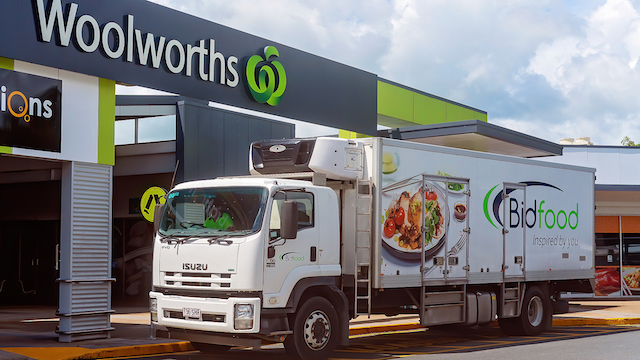Staff shortages and supply chain/delivery issues are the most pressing challenges facing retail businesses in Australia at present, according to an online poll conducted by the Australian Retailers Association (ARA). Of those surveyed, 76 per cent said they currently have staff in isolation due to Covid-19 exposure. The issue is perhaps most evident at the nation’s biggest supermarkets, where shelves of fresh produce are once again bare, not because of panic-buying customers, but because
ecause of the high numbers of people in the supply chain in isolation.
In a letter to customers last week, Woolworths CEO Brad Banducci said the issue was affecting every level – from suppliers to truck drivers and distribution centre team members – and therefore causing delays to store deliveries.
“To give you a sense of the magnitude of the challenge, we are experiencing Covid-driven absences of 20%+ in our distribution centres and 10%+ in our stores,” Banducci said.
New rules for critical workers
On Sunday, NSW Health announced that critical workers in the food logistics and manufacturing sectors deemed as close contacts will be permitted to leave self-isolation to attend work if they are asymptomatic, a ruling that has divided many.
These workers must wear a mask and “comply with risk-management strategies put in place by their employer”, including daily rapid antigen tests – no easy feat at a time when there is a national shortage of tests.
Health authorities in Victoria, Queensland and South Australia have since followed suit with similar guidelines issued.
ARA CEO Paul Zahra welcomed the changes, saying that staffing challenges are having a devastating effect on retailers, particularly small businesses.
“We welcome the moves to ease isolation requirements on essential workers who are close contacts. However, more needs to be done to ease the pressure on this critical workforce so they can adequately staff their stores and move essential goods efficiently across the country,” Zahra said.
However, the Transport Workers Union (TWU) is calling the changes “reckless”, saying it prioritises operational matters over the safety of workers.
“Scrapping isolation requirements for transport workers is beyond reckless – workers are being thrown to the wolves by a government that continues to ignore all the warnings,” said Michael Kaine, National Secretary of TWU.
“We know even if you’re asymptomatic you can still spread the virus. Requiring potentially sick people to go to work won’t make supply chains healthy. Sick drivers won’t get stock onto supermarket shelves any faster but it will certainly help the virus hitch a ride across Australia.”
‘Other factors at play’
Global supply chain disruption has plagued the retail industry for many months now, and while the Omicron variant has compounded the issue, it won’t simply go away when the outbreak comes to an end.
“Omicron is certainly an impact contributor however, there are also other factors at play disrupting the Australian supply chain landscape which have been ongoing for over 12 months looking through a holistic lens at the landscape,” James Sheerin, senior consultant at TMX Global, told Inside Retail.The surging demand for rapid antigen tests, produced locally and overseas, is also becoming an issue for consumers, businesses, and essential workers in the supply chain.
“Deliveries to businesses like supermarkets and pharmacies are dependent on efficient freight movements, so similarly to retail and supermarket sectors, the Covid-induced labour shortage is driving a high impact here,” Sheerin said.
Shipping companies are combating Covid-related staff shortages by re-adjusting schedules to avoid delays when destination terminals have Covid exposures, and in some cases shipping lines globally may be favouring less manually operated destination terminals in favour of highly automated terminals with technology for loading and unloading container vessels, Sheerin explained.
He believes that allowing essential freight workers that are deemed as close contacts but return negative RATs to avoid longer isolation periods will help ease the labour shortages.
Due to ongoing disruption, some retailers have adopted a “just in case” inventory management system for their imports as opposed to a “just in time” method, according to Sheerin.
“This has allowed some businesses to mitigate higher exposure to supply chain delays but stockpiling higher than usual levels of products to cater for high demand and the risks of delays,” he said.
Meanwhile, many others are opting for more airfreighting of products, although this is costly.
“Given a higher influx recently of planes circling back in the global airline market with less travel restrictions, this has made it easier, but not practical for all operators,” Sheerin said.

